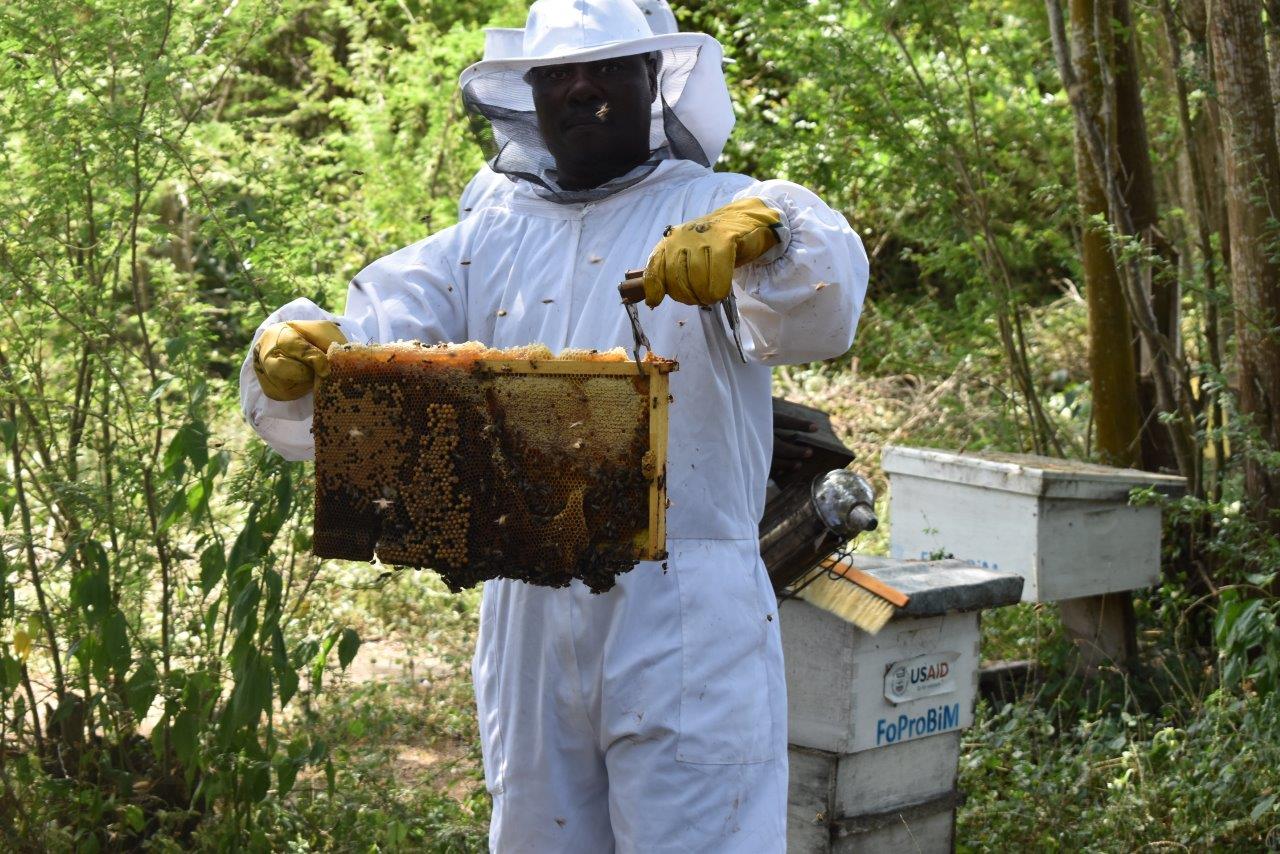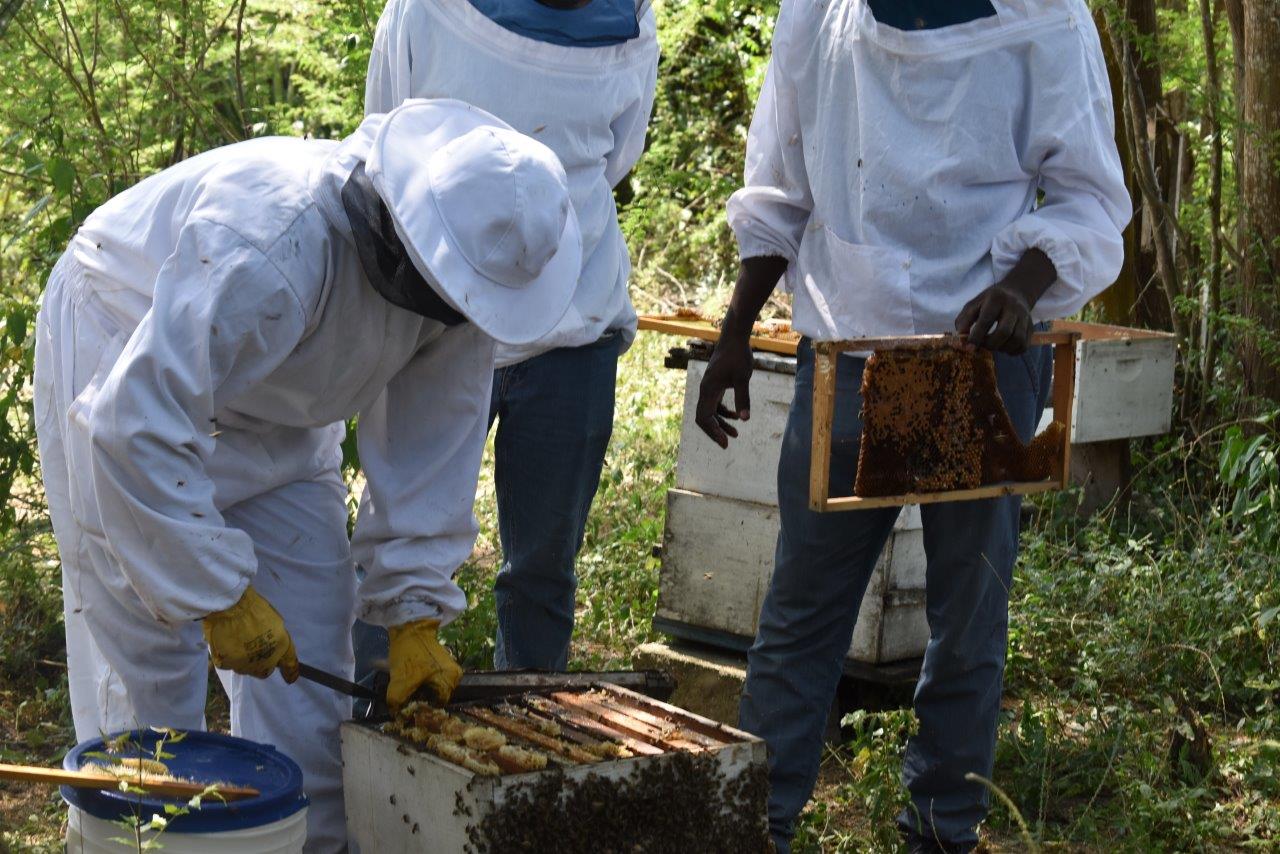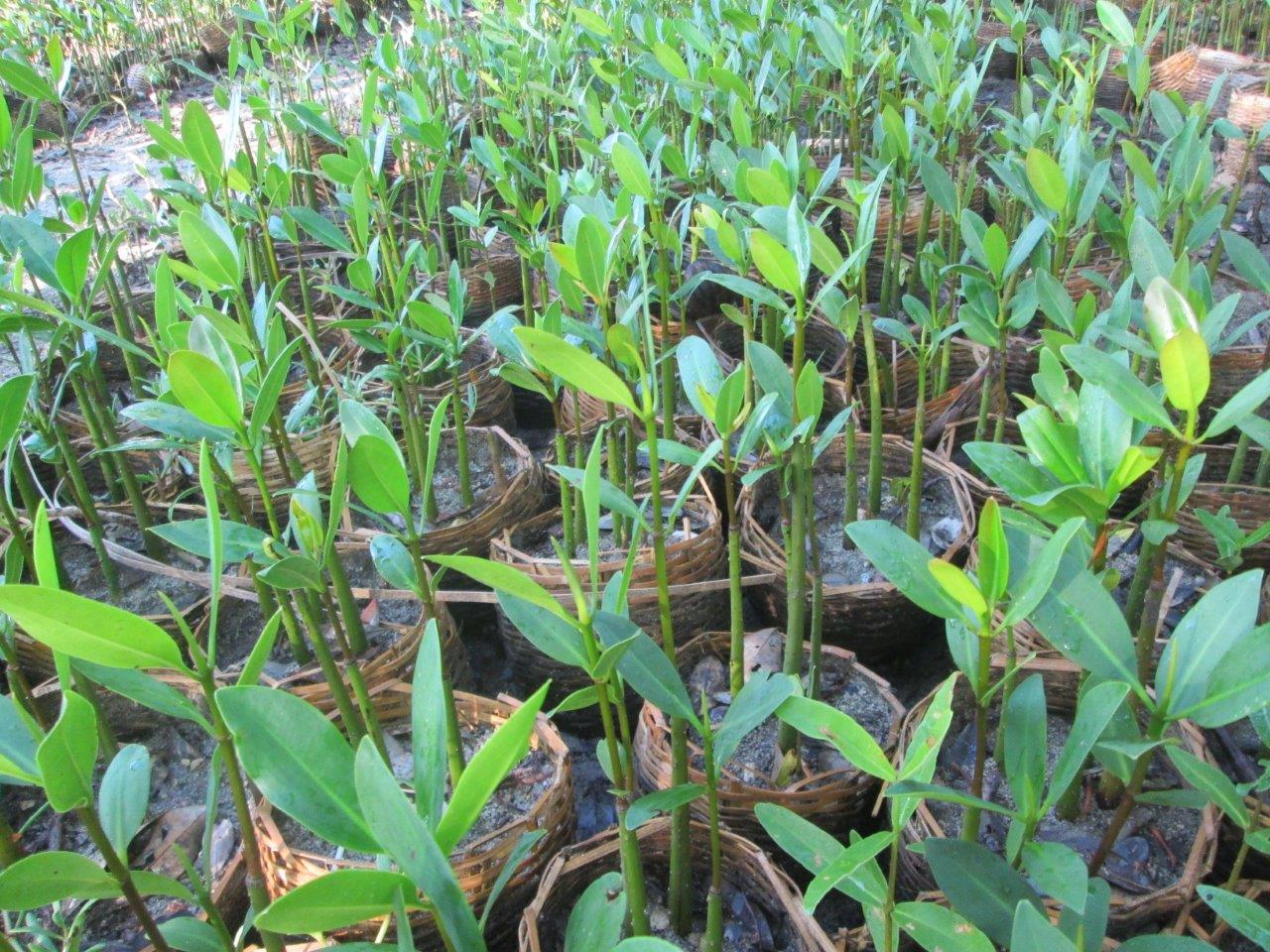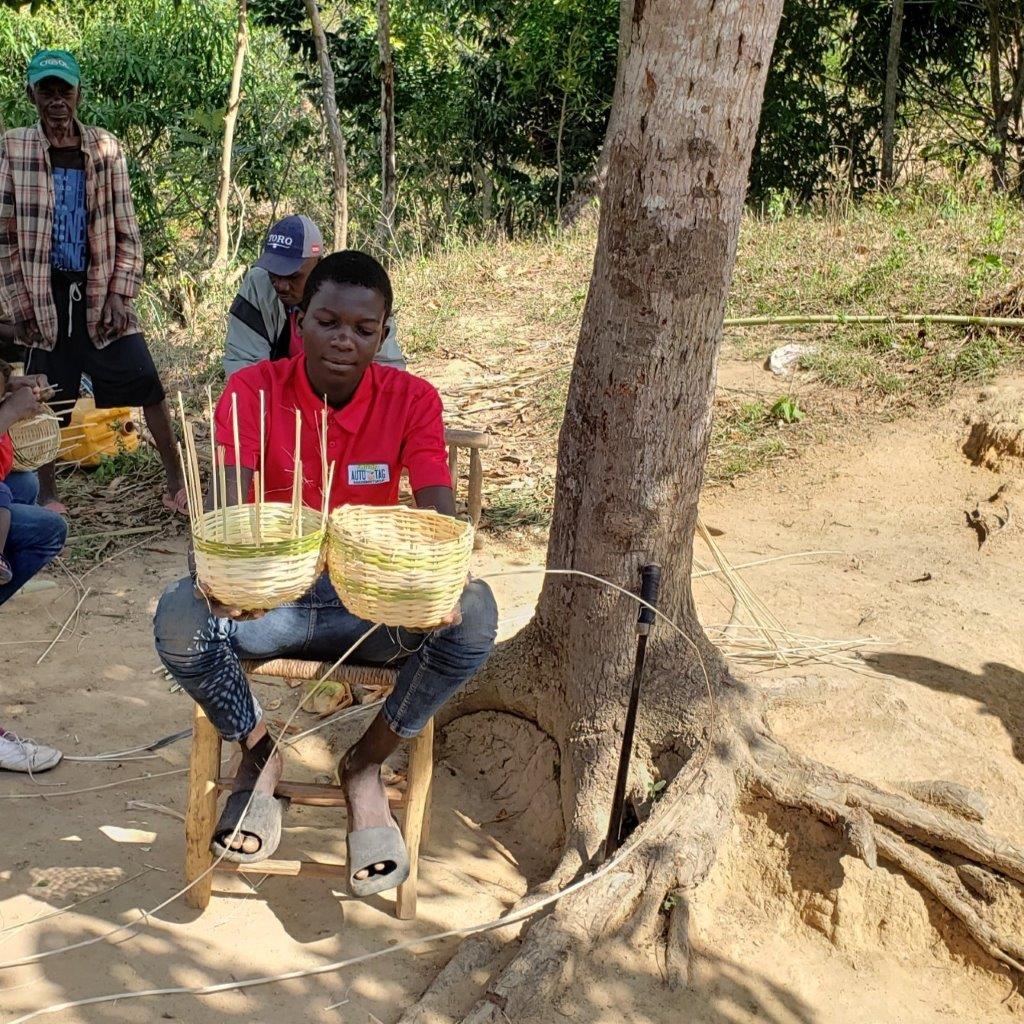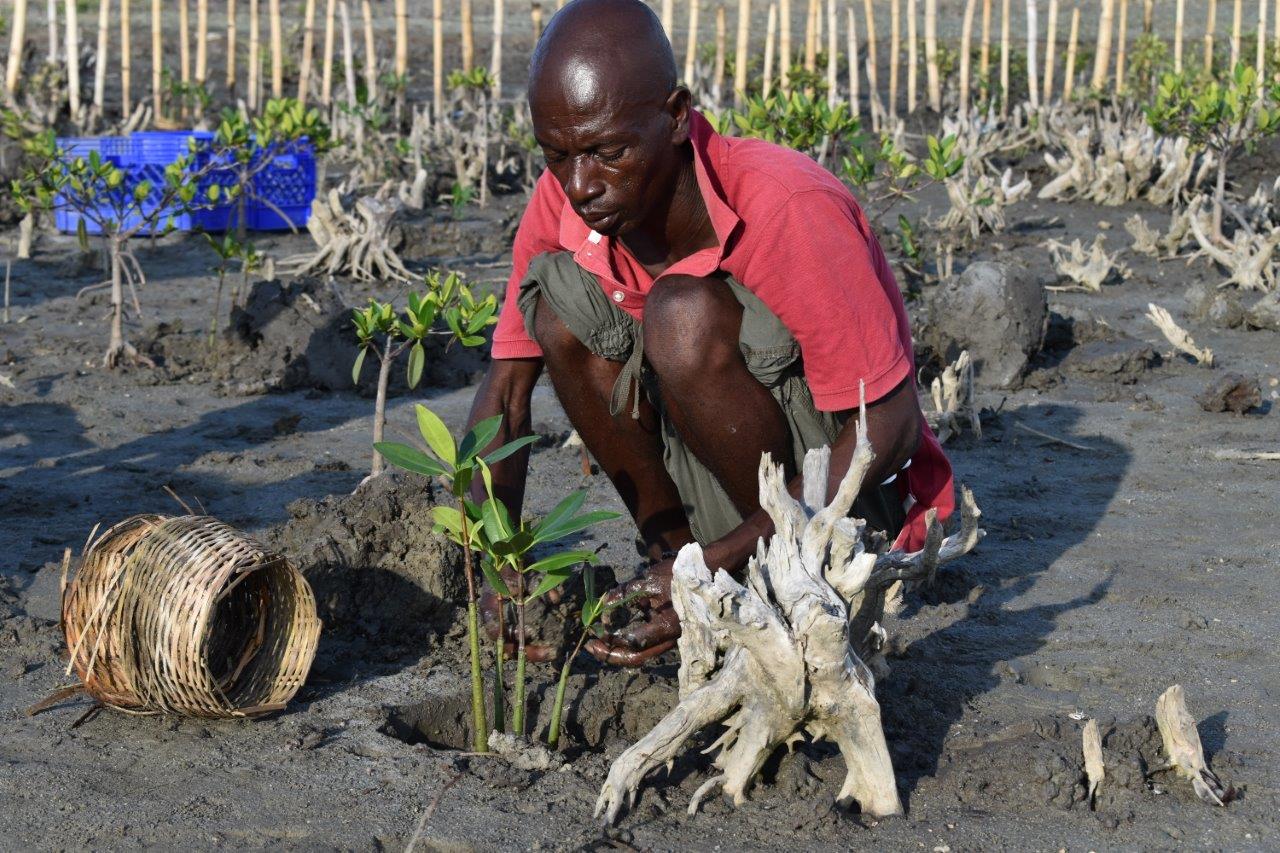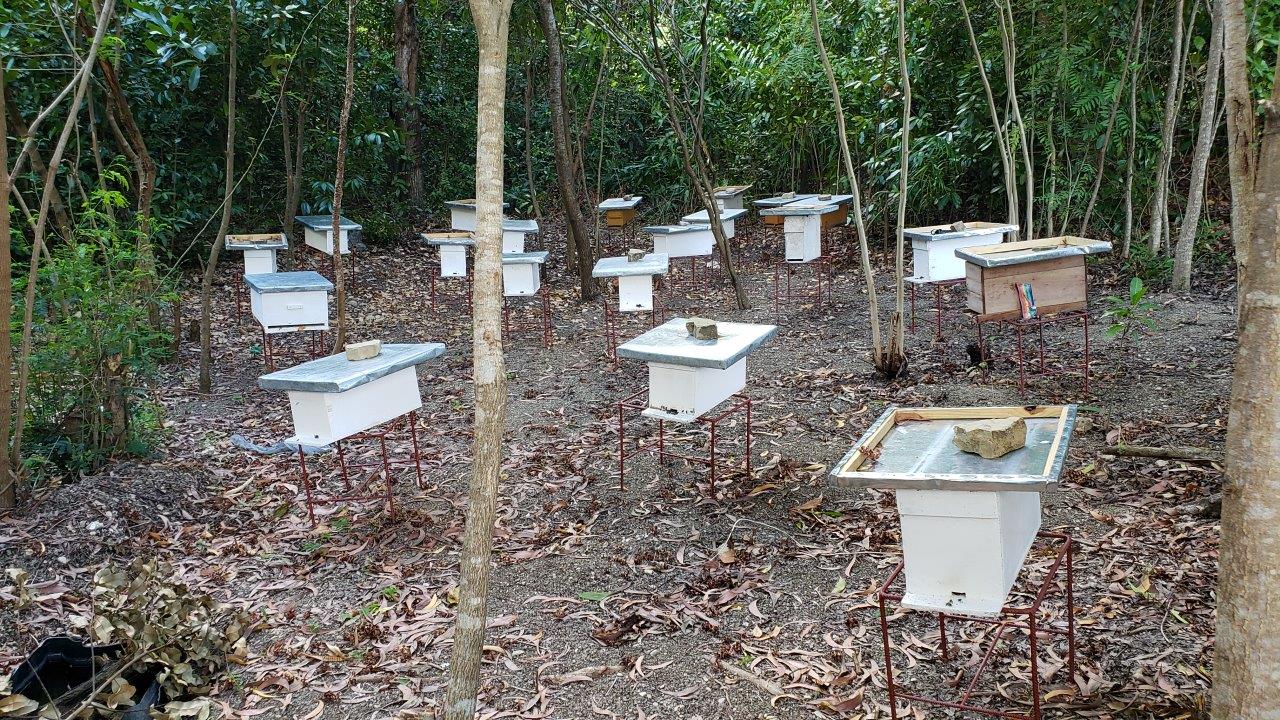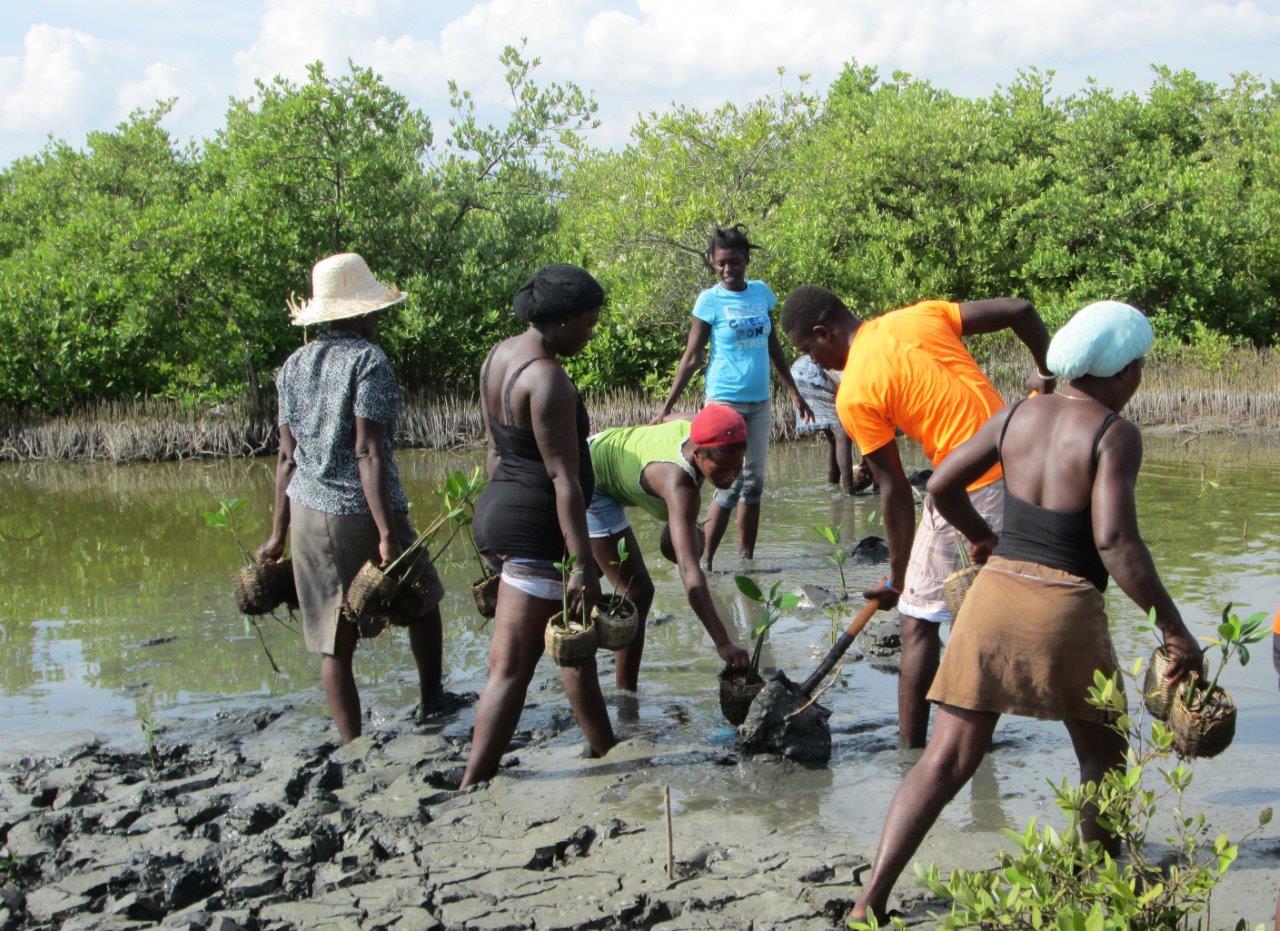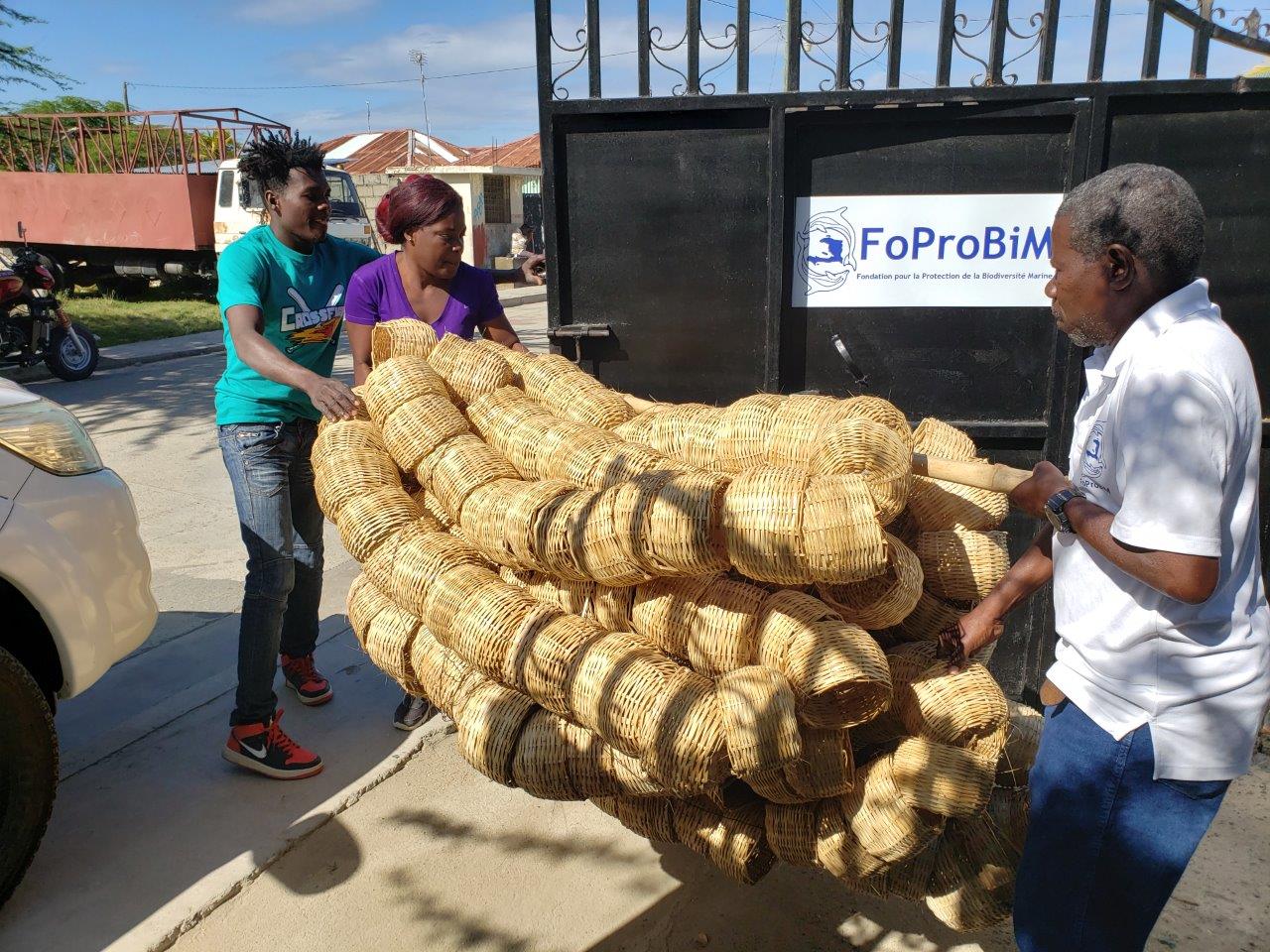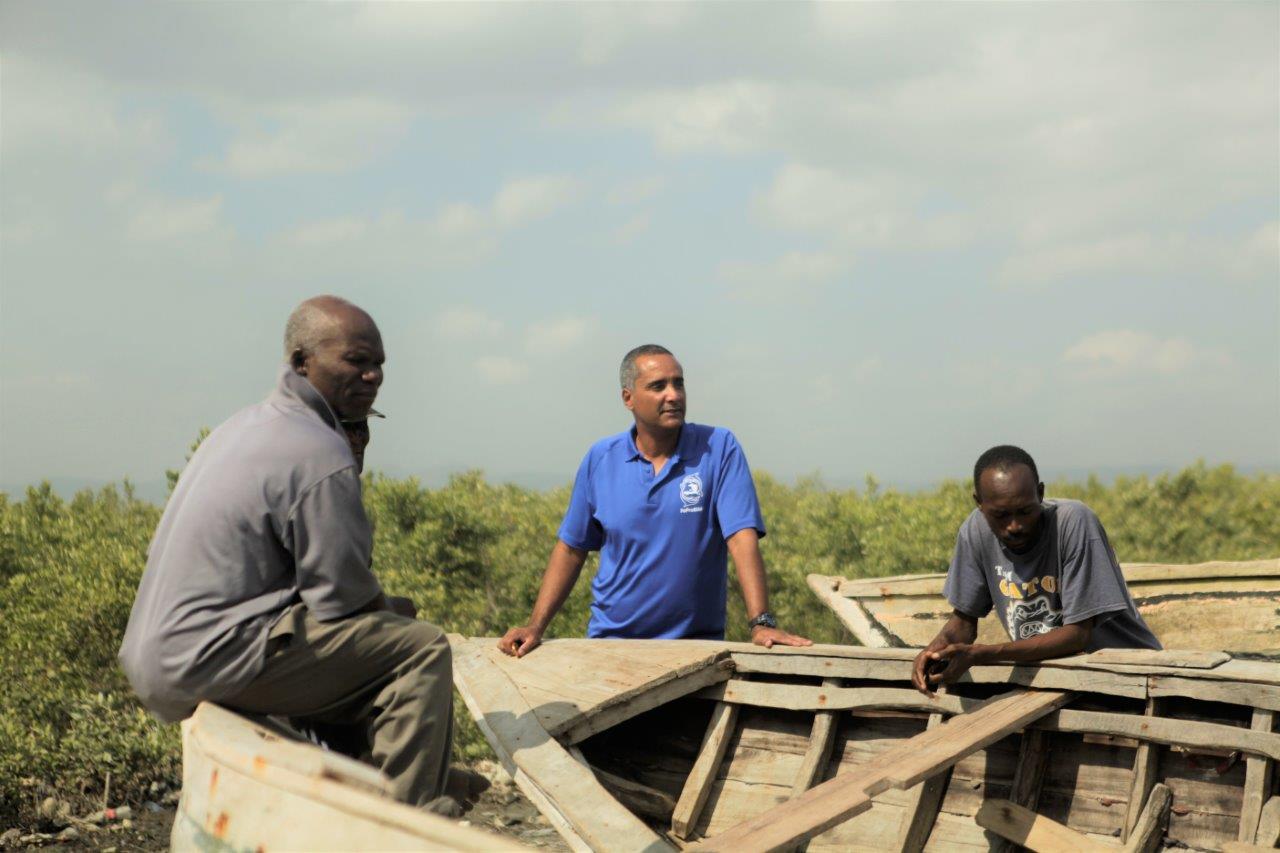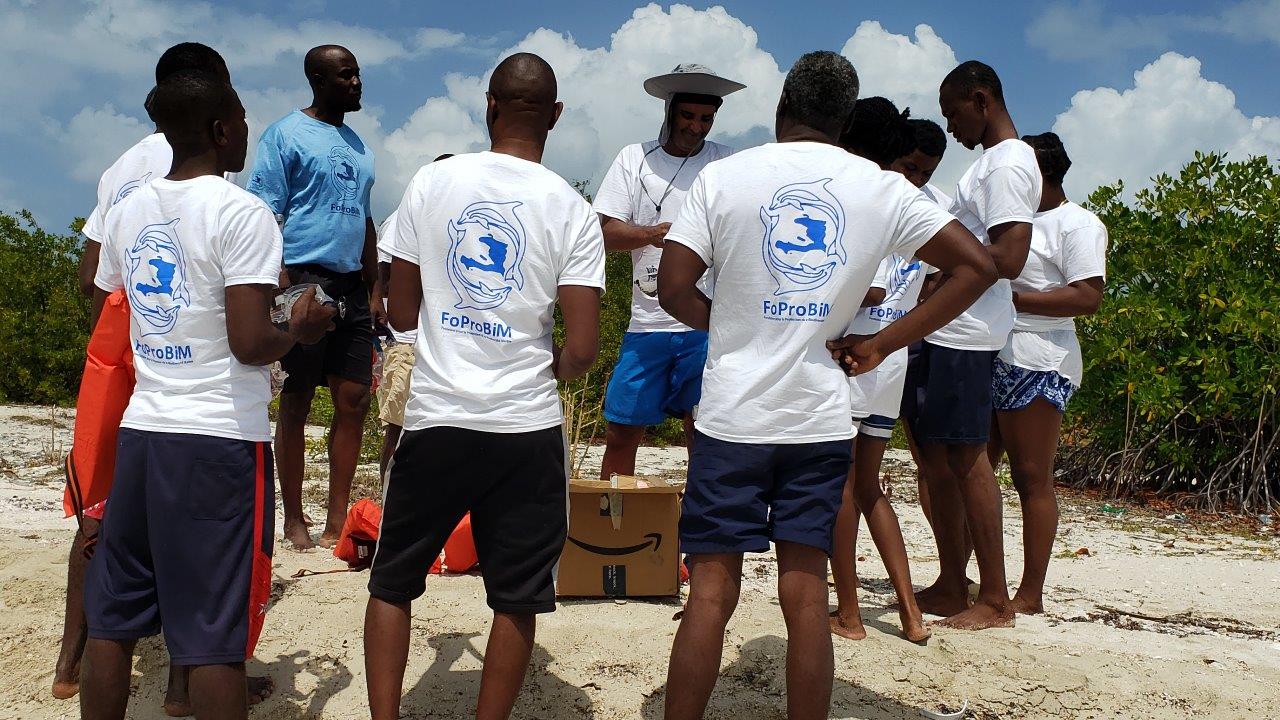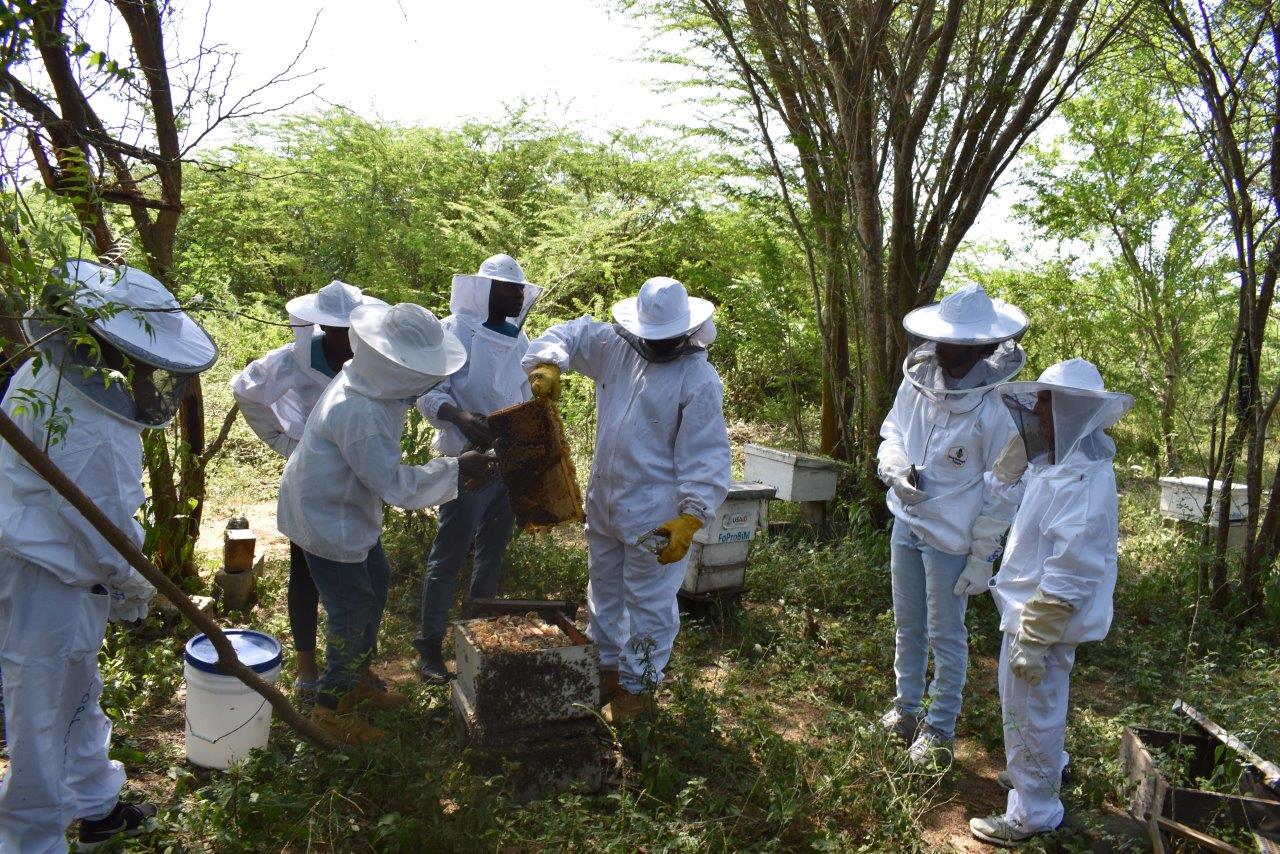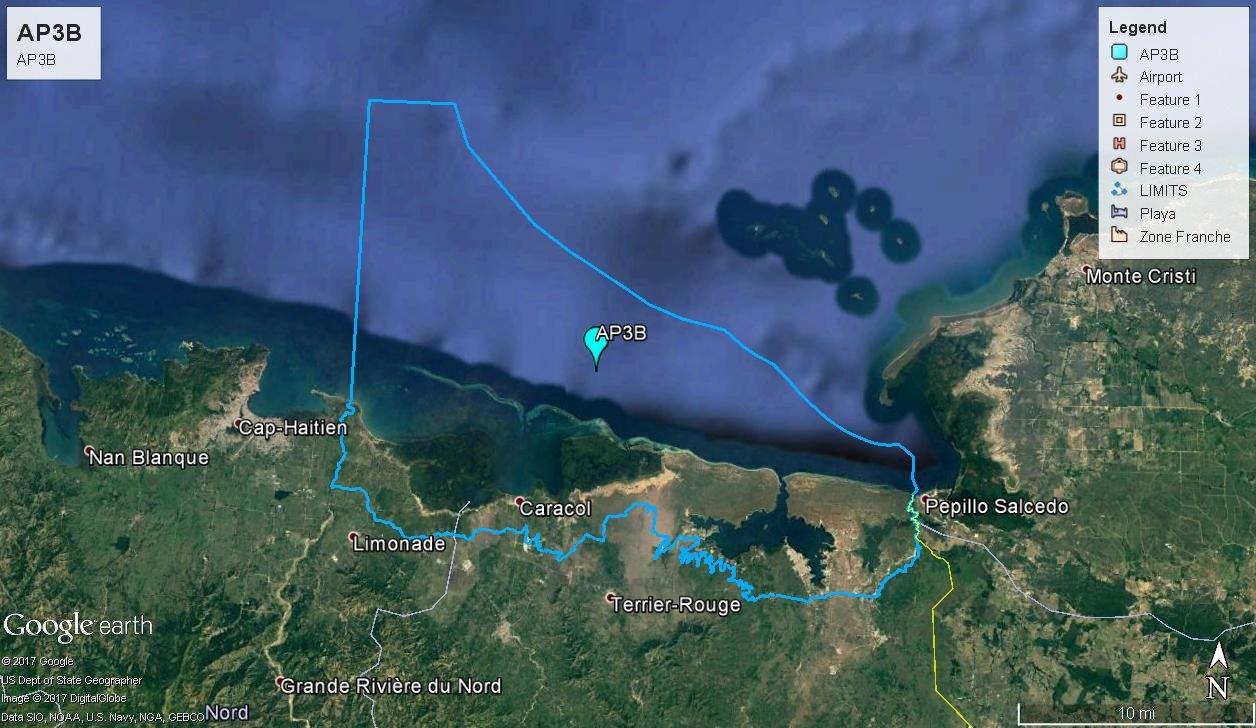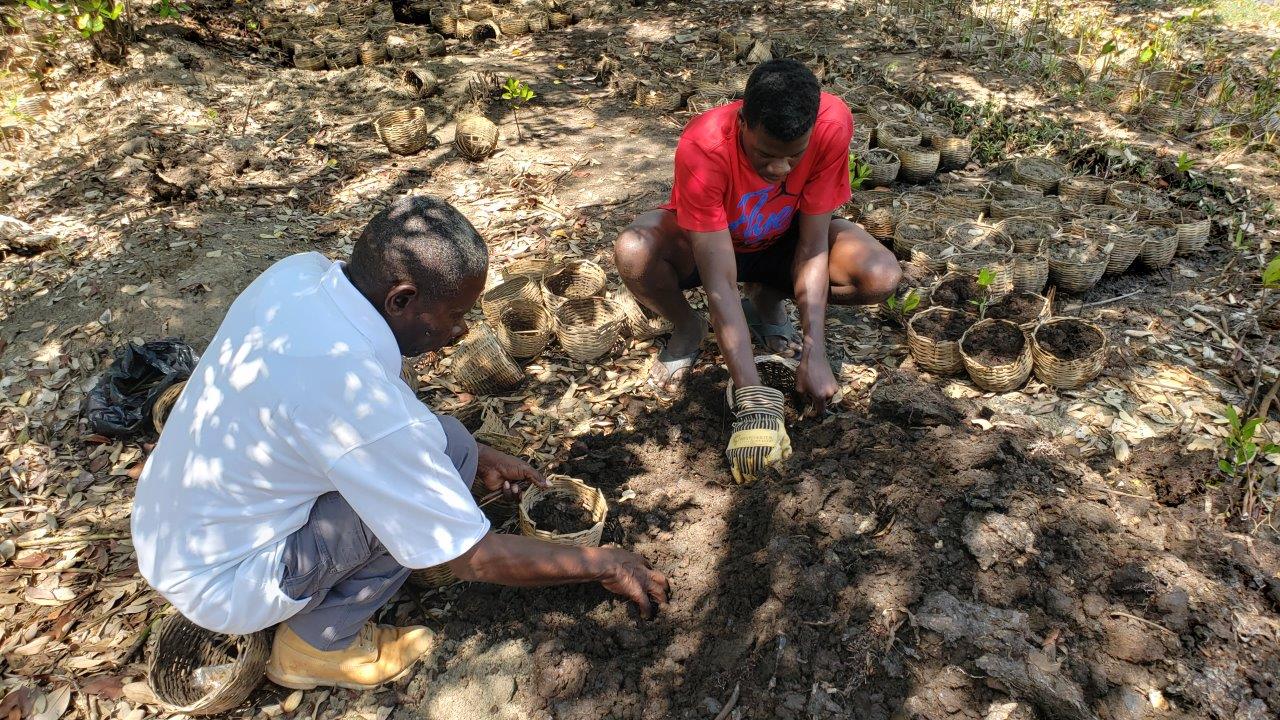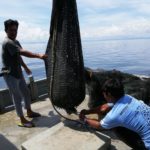Take Action
Plan Bee for Mangroves works in Haiti and is trying to reduce the unsustainable harvesting of mangroves by helping Haitians set up apiculture (honey production) businesses. This provides the community with an alternative and more sustainable source of income to harvesting them. FoProBiM has been working with communities across Haiti for over 30 years. Working in a country with a complex socio-economic-political context, and a severely degraded environment, it is implementing an integrated social approach to protecting the environment.
What are we fundraising for?
•Beehives for set up of another apiculture business.
•Training of local associations to sustain apiculture business.
•Planting of mangroves.
Why:
•More km2 of rehabilitated mangrove areas.
•New apiculture businesses to support local living.
Goal: €27.600,00
Donate nowSea the Work
Project budget
Yearly budget: € 48.600,00
Budget secured: 0%
16%
Workforce
53%
Fieldwork
31%
Community Capacitation
Deep dive
Plan Bee for Mangroves is a project lead by Jean Wiener, founder of the NGO FoProBiM (Fondation pour la Protection de la Biodiversité Marine). As a Haitian national, staring at a country with no entities fighting for the ocean, Jean took matters into his own hands. With the establishment of FoProBiM 30 years ago, Jean began to build a team to work with him, integrating the community at the core of the work. Through slow and steady steps, the first MPAs of Haiti were established, the mangroves were legally protected, and community work across the country was supported. Management and protection plans are still being created by the team to support the government in its legislation, alongside projects to accelerate the rehabilitation of this crucial ecosystem.
Given the difficult political, but particularly economic situation of the country, harvesting wood from the mangroves provides the community with a quick and easy source of income and fuel; necessary goods which provide economic security to the families. However, the excessive dependance on mangroves by the community will quickly lead to the depletion of a natural resource that provides benefit to the community in many other indirect forms; including the increase in fish biomass for food security and coastal protection of storms. The trade-off presented (live mangroves vs mangrove wood) results in decreased food security and coastal protection for more immediate income and fuel. In the long run this will cause serious problems. Fuel and income can be sourced from other means, whereas the food security and coastal protection provided by mangroves is irreplaceable.
Providing alternative forms of income presents an opportunity to reduce the need to harvest mangroves for income and fuel. With a more long-term approach to community well-being Plan Bee helps local community associations set-up apiculture businesses. Apiculture is the production of honey, where the bees benefit from having thriving mangroves in their surroundings. Equipped with the right tools and knowledge, the members involved will be able to cultivate the honey and sell this commercially valuable produce in their local markets. This activity has already been carried out in 4 different regions. An important element of Plan Bee is the rehabilitation of mangrove areas that have been cut down. For this, the project buys locally produced bamboo baskets for the planting of seedlings. This not only keeps money in the country, but also reduces the plastic waste in mangrove restoration. Finally, as the local community members are employed to carry out the rehabilitation activities, they are introduced to the importance of mangroves and taught the importance of the activity.
The current goal of the project, in collaboration with diverse local associations, is to increase the number of locations and communities receiving support.

